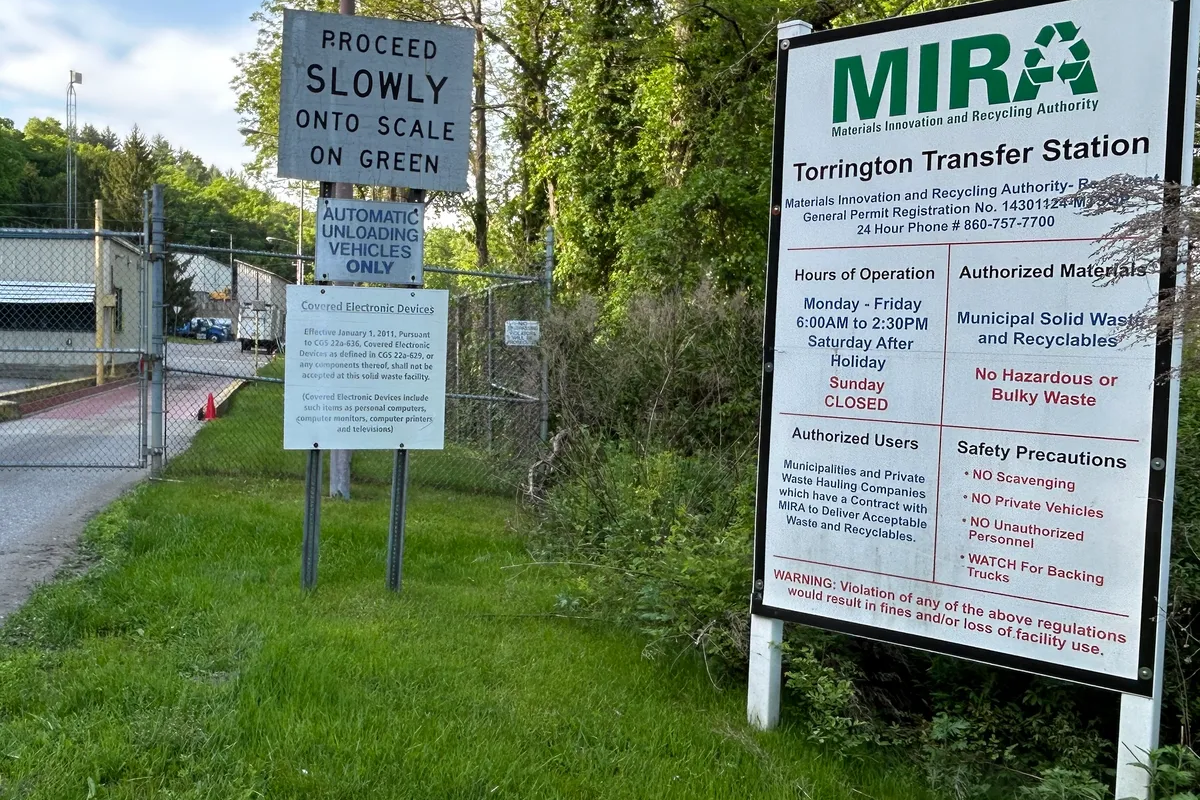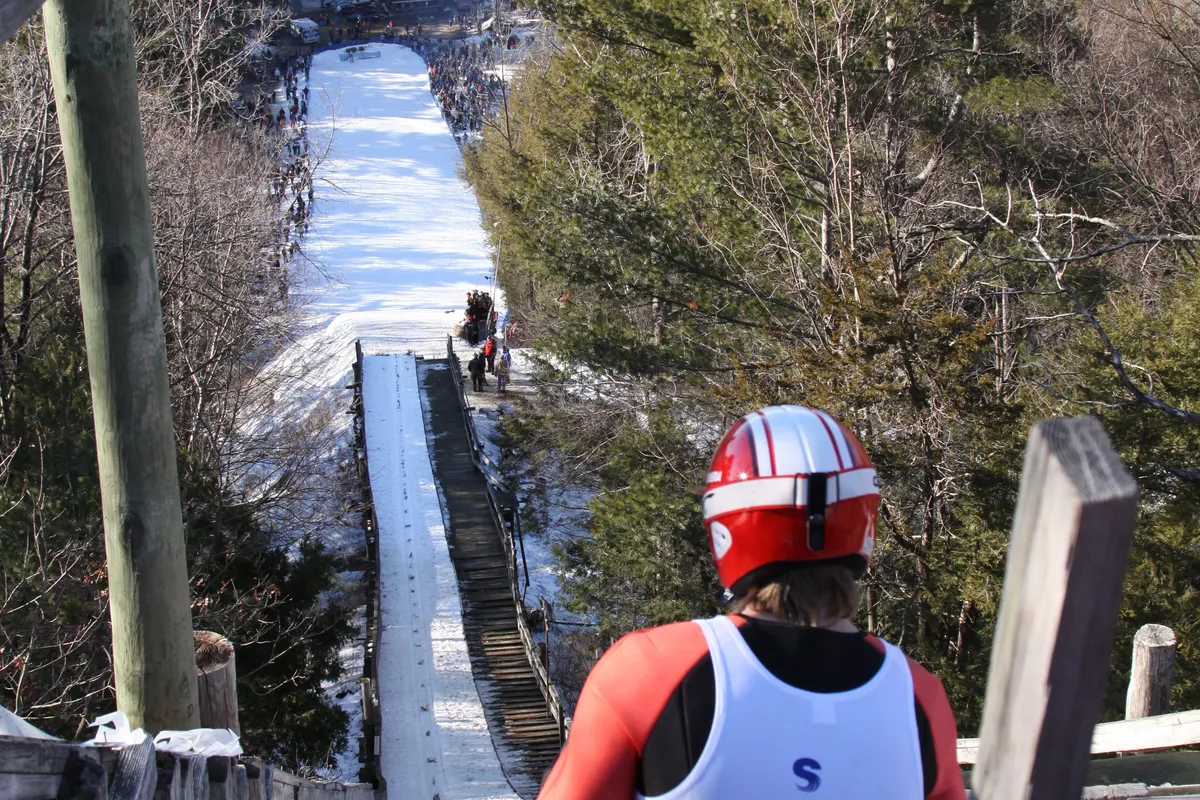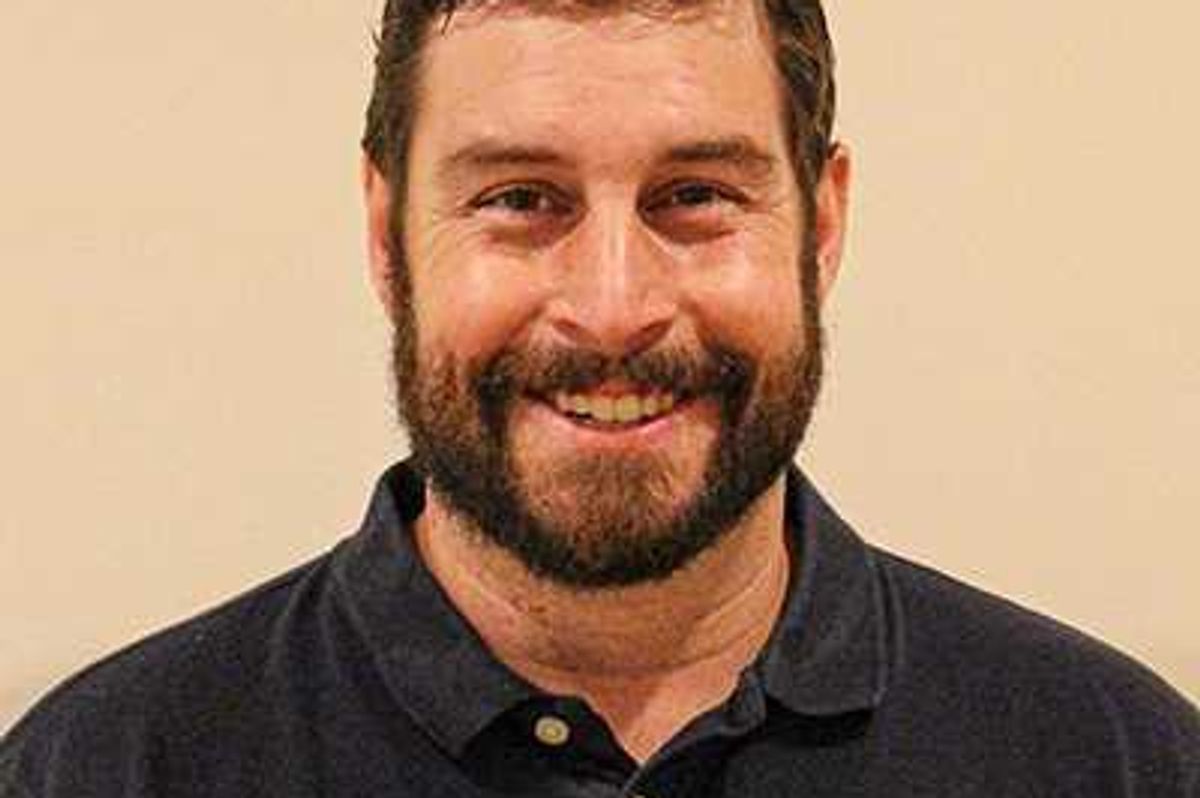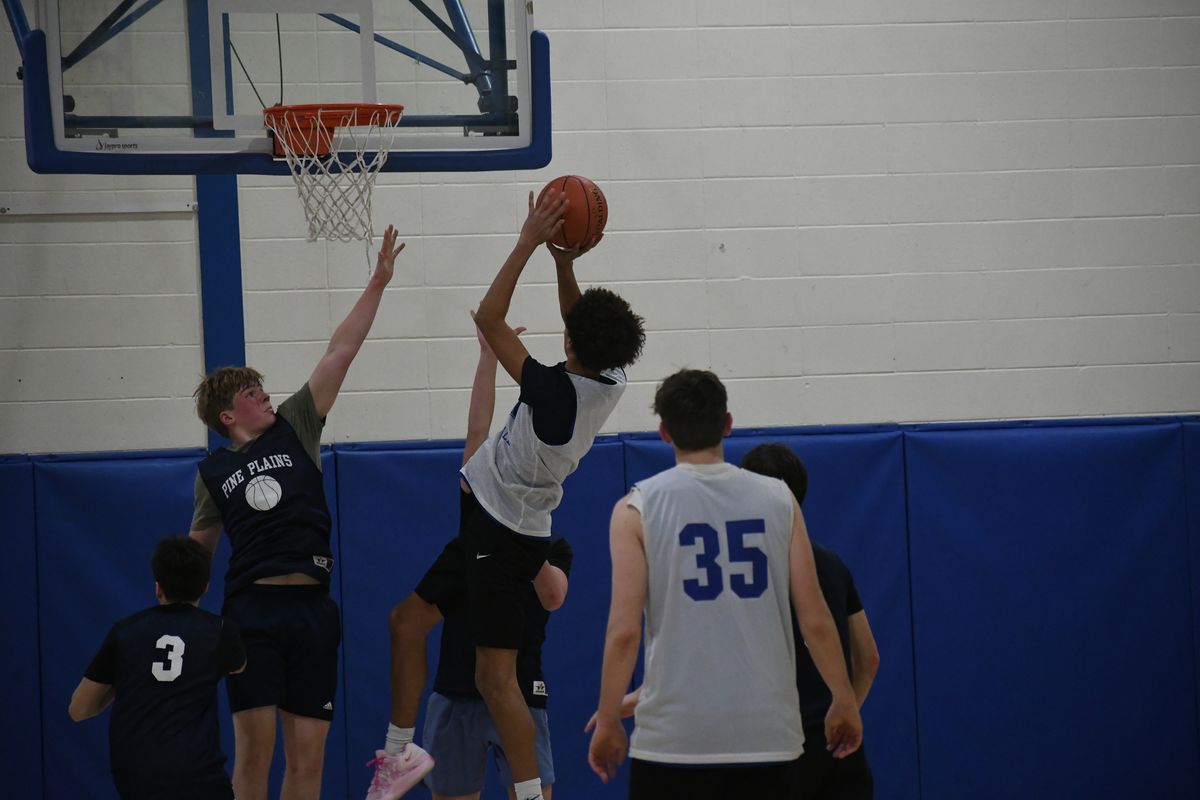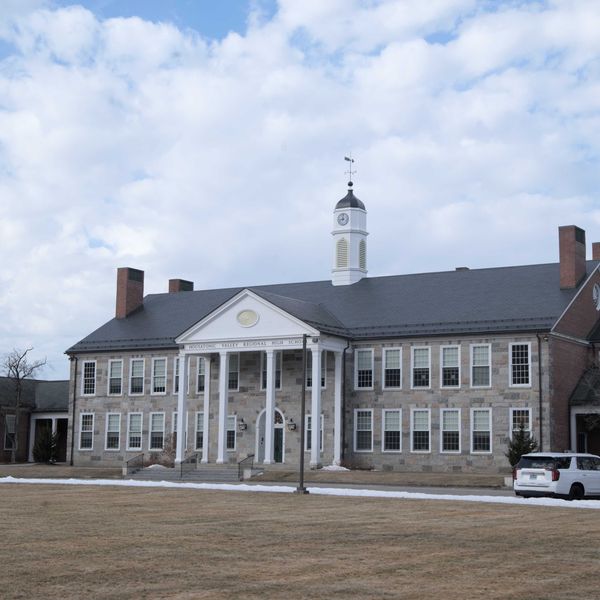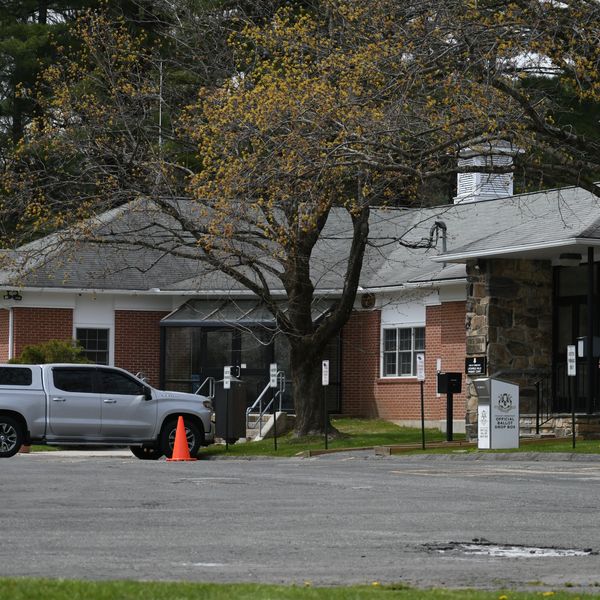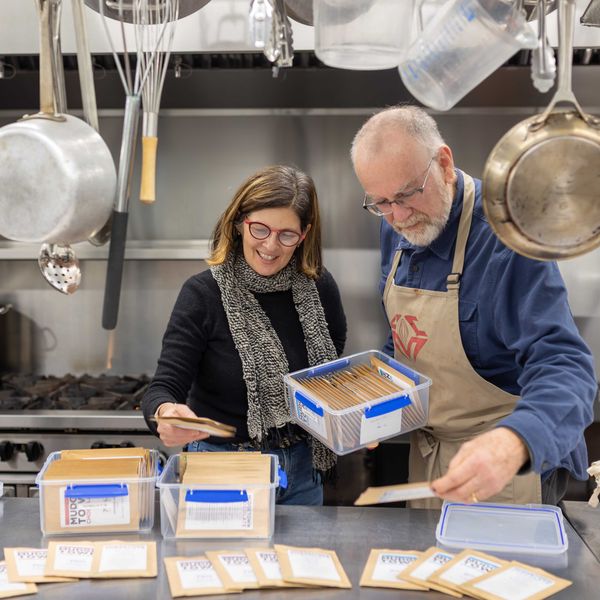Latest News
The Torrington Transfer Station, where the Northwest Resource Recovery Authority plans to expand operations using a $350,000 state grant.
By Riley Klein
TORRINGTON — The Northwest Resource Recovery Authority, a public entity formed this year to preserve municipal control over trash and recycling services in northwest Connecticut, has been awarded $350,000 in grant funds to develop and expand its operations.
The funding comes from the Department of Energy and Environmental Protection via its Sustainable Materials Management grant program. It is intended to help the NRRA establish operations at the Torrington Transfer Station as well as support regional education, transportation, hauler registration and partnerships with other authorities.
Founded by the City of Torrington in May 2025, the NRRA was established to oversee regional municipal solid waste management. Its creation followed a $3.25 million offer by USA Waste & Recycling to purchase the Torrington Transfer Station — a sale that would have privatized trash services in the region.
The proposed sale was initially approved by the MIRA Dissolution Authority, the entity responsible for dissolving the state’s former Materials Innovation and Recycling Authority, which owned the Transfer Station at the time. Before the transaction could close, the state intervened and directed that the facility’s operating permit be assigned to the NRRA to preserve a publicly controlled alternative.
MIRA has since dissolved, and the Transfer Station is currently operated by the state Department of Administrative Services. Many towns in northwest Connecticut have expressed interest in joining the NRRA. As of December, Torrington and Goshen were the only two municipalities in the authority.
At the Dec. 11 meeting of the Northwest Hills Council of Governments (COG) — a regional planning body representing 21 municipalities in northwest Connecticut — Director of Community and Economic Development Rista Malanca encouraged more towns to sign on.
“We need towns to join the Northwest Resource Recovery Authority to show your support, show this is what you want to do,” Malanca said.
Salisbury First Selectman Curtis Rand said his municipality is planning a town meeting in January to vote on a resolution to join the NRRA. Cornwall’s Board of Selectmen recently discussed scheduling a town meeting in the winter for the same purpose. Sharon, Falls Village and North Canaan have also expressed continued interest in pursuing a public option.
Kent is the northernmost member of the Housatonic Resource Recovery Authority, a regional solid waste authority representing 14 municipalities stretching south to Ridgefield. COG towns expressed interest in joining HRRA in 2024, but they were denied and set out to develop the NRRA.
“We also have been having conversations with the Capital Region Council of Governments and the Naugatuck Valley Council of Governments to think about how we can use existing resources, maybe some of these grant funds, to bring in shared resources or shared staffing that will help with some of the recycling coordinating efforts,” Malanca said.
With grant funds secured, NRRA aims to grow to a point that it can take over operations at Torrington Transfer Station to serve as a regional hauling hub. What happens to the trash after that has yet to be determined. Currently, it is being shipped to a landfill out of state. The existing municipal refuse hauling contracts that were established with the state expire in 2027.
Keep ReadingShow less
Ski jump camp for kids returns Dec. 27, 28
Photo provided
The Salisbury Winter Sports Association (SWSA) will host its annual Junior Jump Camp, a two-day introduction to ski jumping, on Saturday and Sunday, Dec. 27 and 28, from 9 a.m. to 2 p.m. at Satre Hill in Salisbury.
The camp is open to children ages 7 and up and focuses on teaching the basics of ski jumping, with an emphasis on safety, balance and control, using SWSA’s smallest hill. No prior experience is required.
The cost is $50 per child and includes instruction and lunch on both days. For more information or to register, visit www.skireg.com/swsa-camp or email info@jumpfest.org
Keep ReadingShow less
Jesse Bunce, first selectman of North Canaan.
Photo provided
LITCHFIELD — The Northwest Hills Council of Governments welcomed six newly elected municipal leaders Thursday, Dec. 11, at its first meeting following the 2025 municipal elections.
The council — a regional planning body representing 21 towns in northwest Connecticut — coordinates transportation, emergency planning, housing, economic development and other shared municipal services.
Barkhamsted First Selectman Meaghan Cook, Goshen First Selectman Seth Breakell, Kent First Selectman Eric Epstein, Norfolk First Selectman Henry Tirrell, North Canaan First Selectman Jesse Bunce and Torrington Mayor Molly Spino were each elected to their post in November.
They filled the seats of their predecessors on the COG, who were each given a toast of appreciation: Nick Lukiwsky (Barkhamsted), Todd Carusillo (Goshen), Marty Lindenmeyer (Kent), Matt Riiska (Norfolk), Brian Ohler (North Canaan) and Elinor Carbone (Torrington).
COG Executive Director Rob Phillips said the outgoing members were given a going away mug that read “You’re living the dream still.” Members voted to appoint Warren First Selectman Greg LaCava to fill a vacancy on the Council’s Executive Committee. COG members voted by paper ballot, and LaCava defeated Burlington First Selectman Doug Thompson for the vacant seat.
Keep ReadingShow less
Ryan Segalla takes a fadeaway shot over a defender.
By Riley Klein
FALLS VILLAGE — Housatonic Valley Regional High School’s boys basketball team defeated Pine Plains High School 60-22 in a scrimmage Tuesday, Dec. 9. The non-league preseason game gave both sides an opportunity to run the court ahead of the 2025-26 varsity season.
HVRHS’s senior-heavy roster played with power and poise. The boys pulled ahead early and kept their foot on the gas through to the end.
By halftime the score was 33-8. Junior varsity players subbed in for the second half, but not before the starters got some in-game dunk practice. By the end Housatonic totaled 60 points to Pine Plains’ 22.
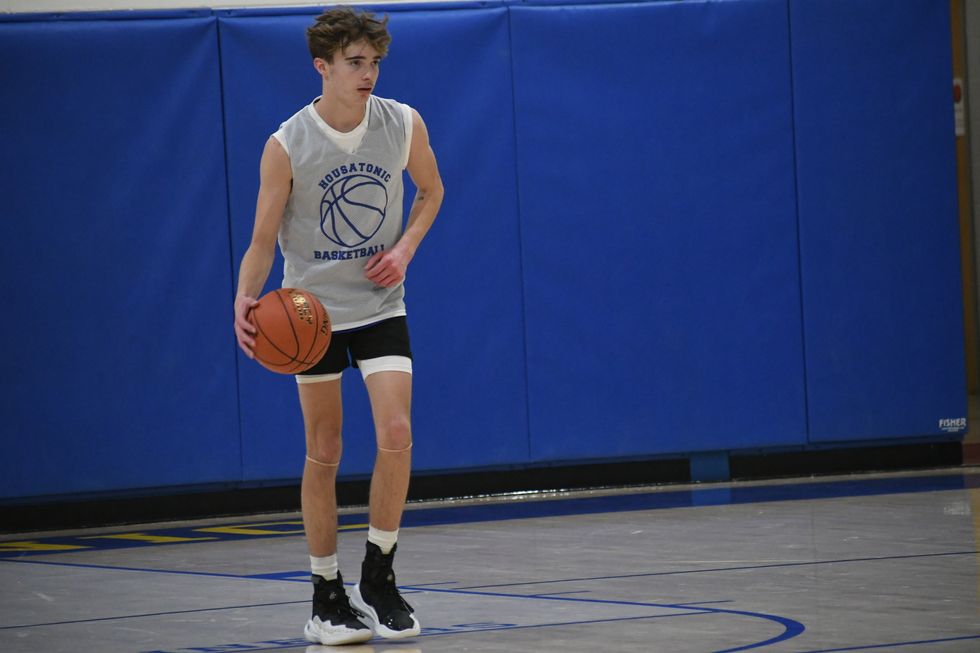
Nick Crodelle led the Mountaineers offensively with 13 points. Anthony Labbadia and Wyatt Bayer scored nine points each. Anthony Foley scored eight points. Owen Riemer and Ryan Segalla each scored seven points. Peyton Bushnell hit a three-pointer. Jaxon Visockis and Henry Berry each scored two points.
HVRHS begins Berkshire League competition on the road at Nonnewaug High School Tuesday, Dec. 16, with a 6 p.m. tip off.
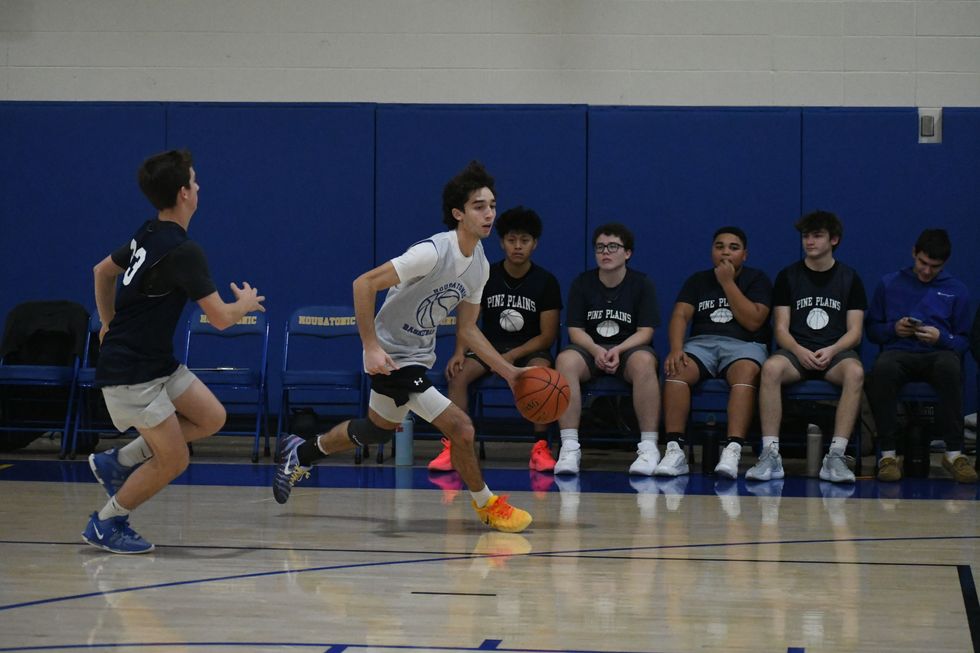
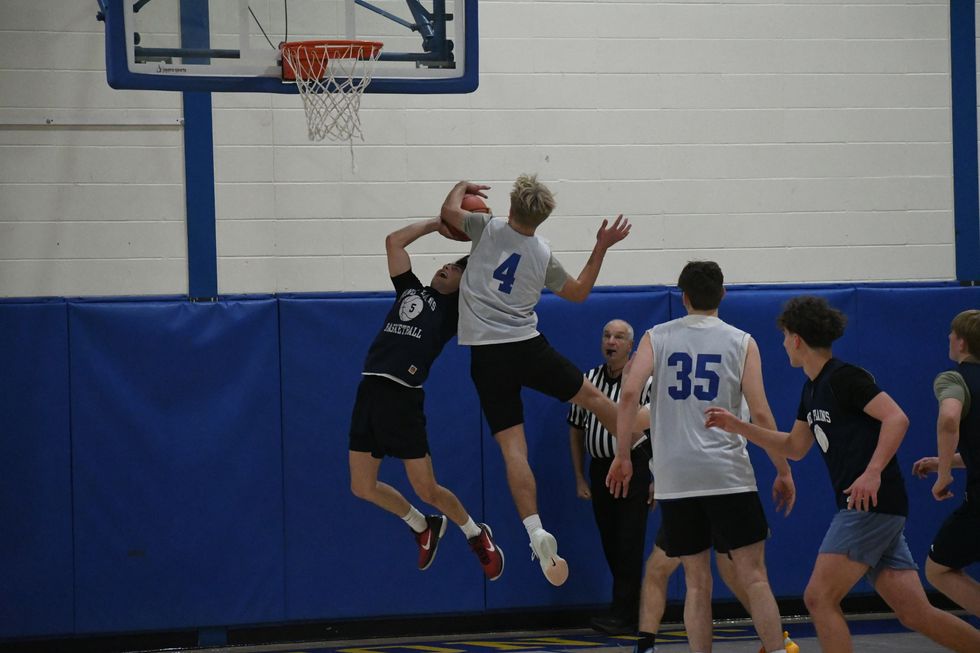
Keep ReadingShow less
loading
